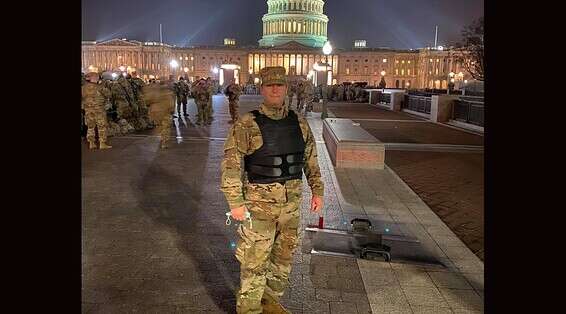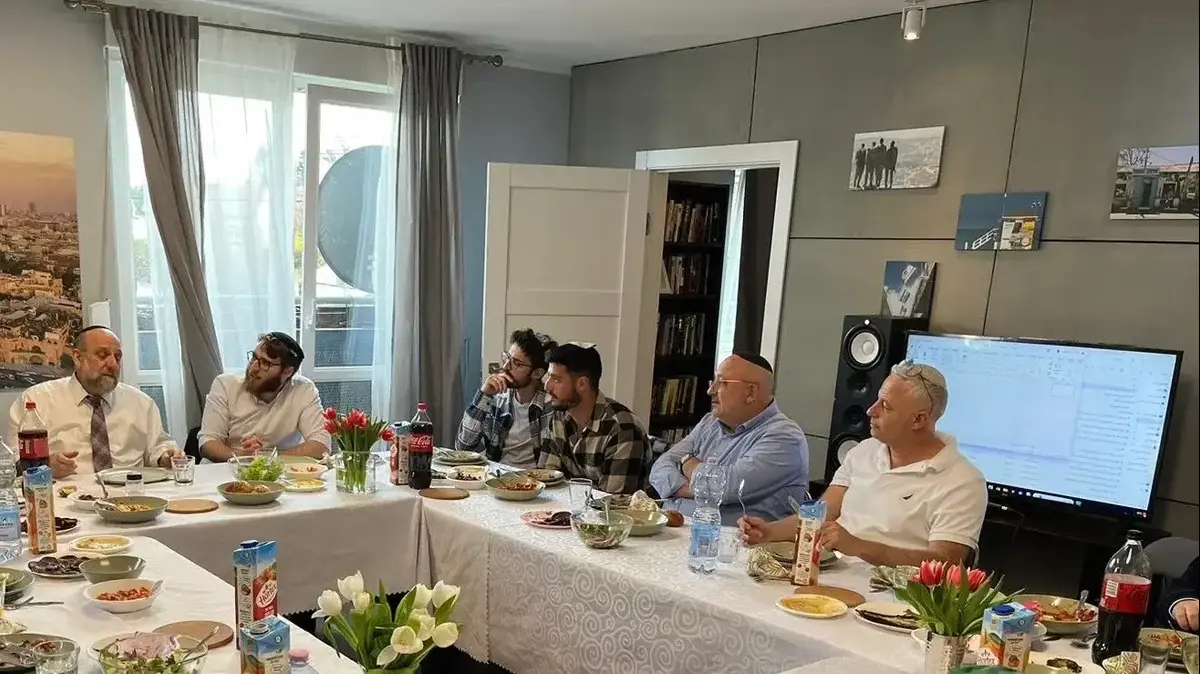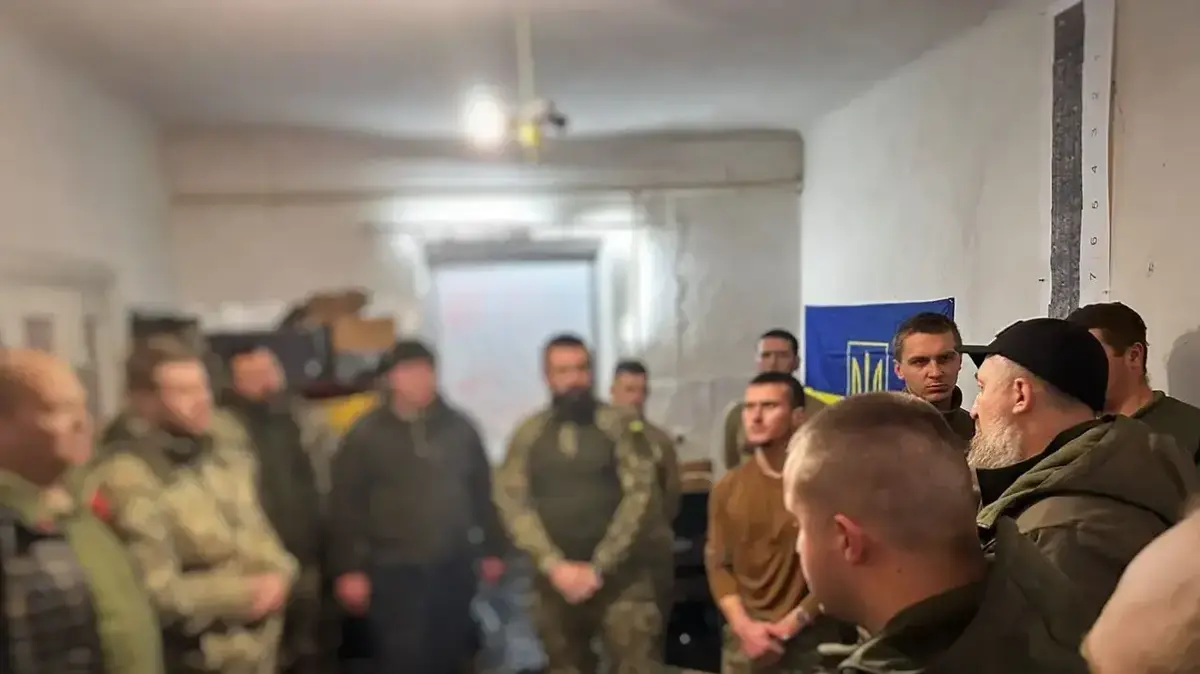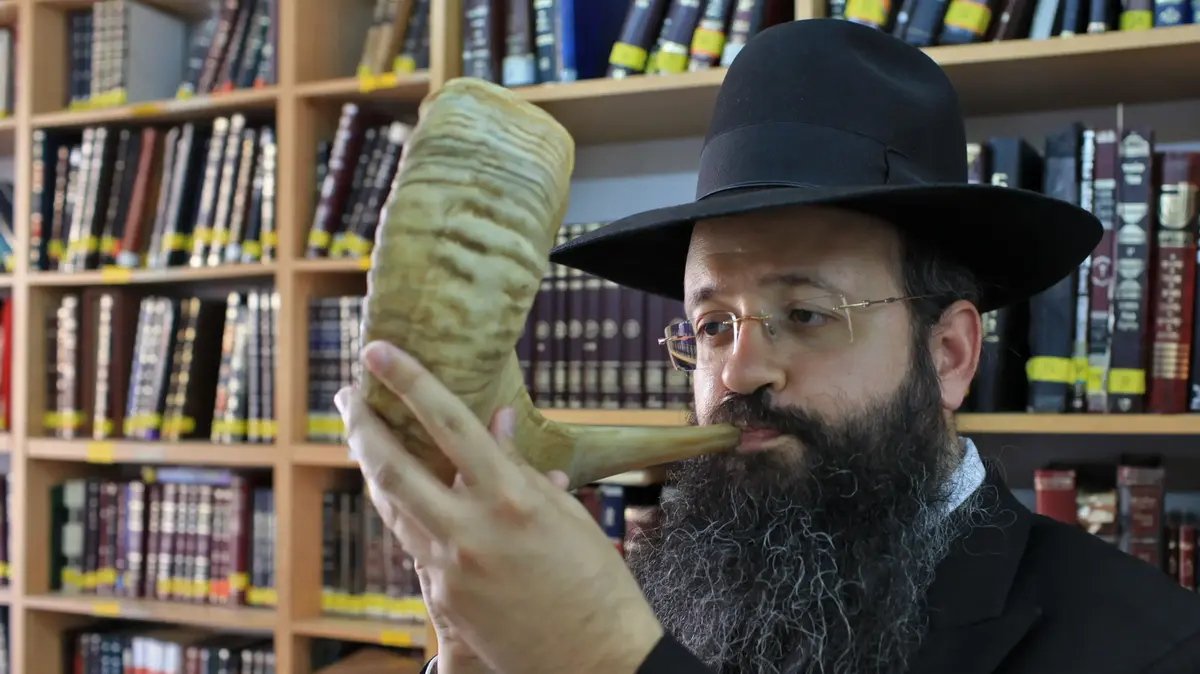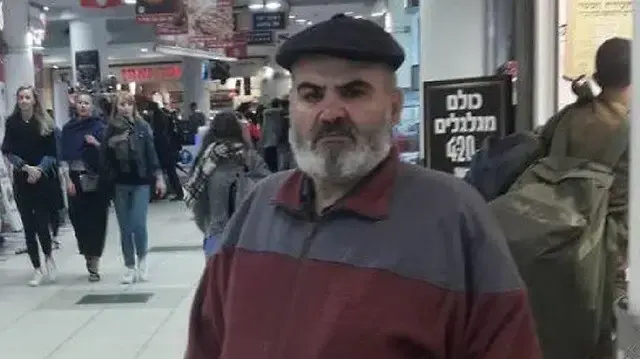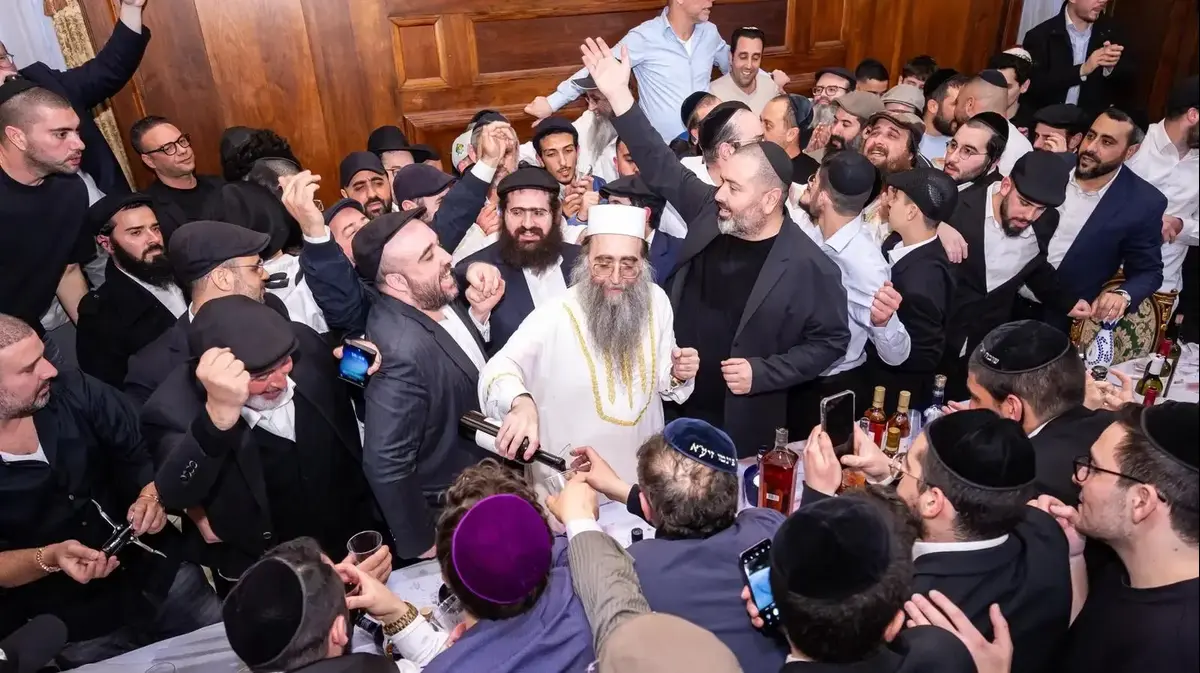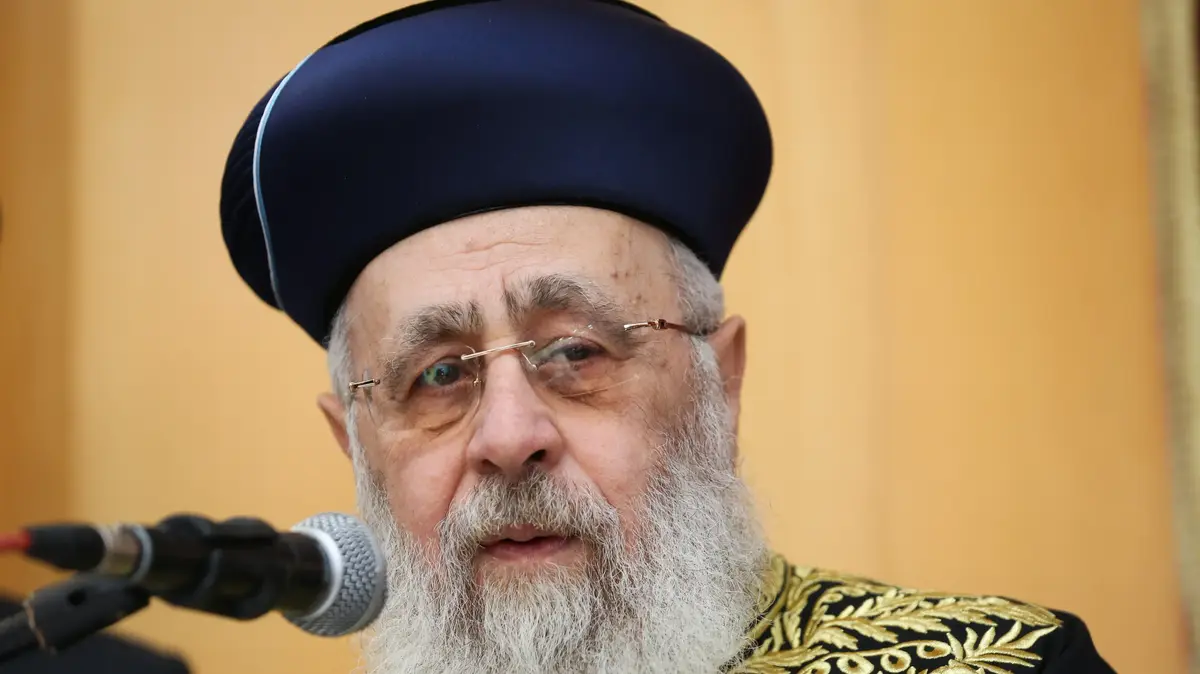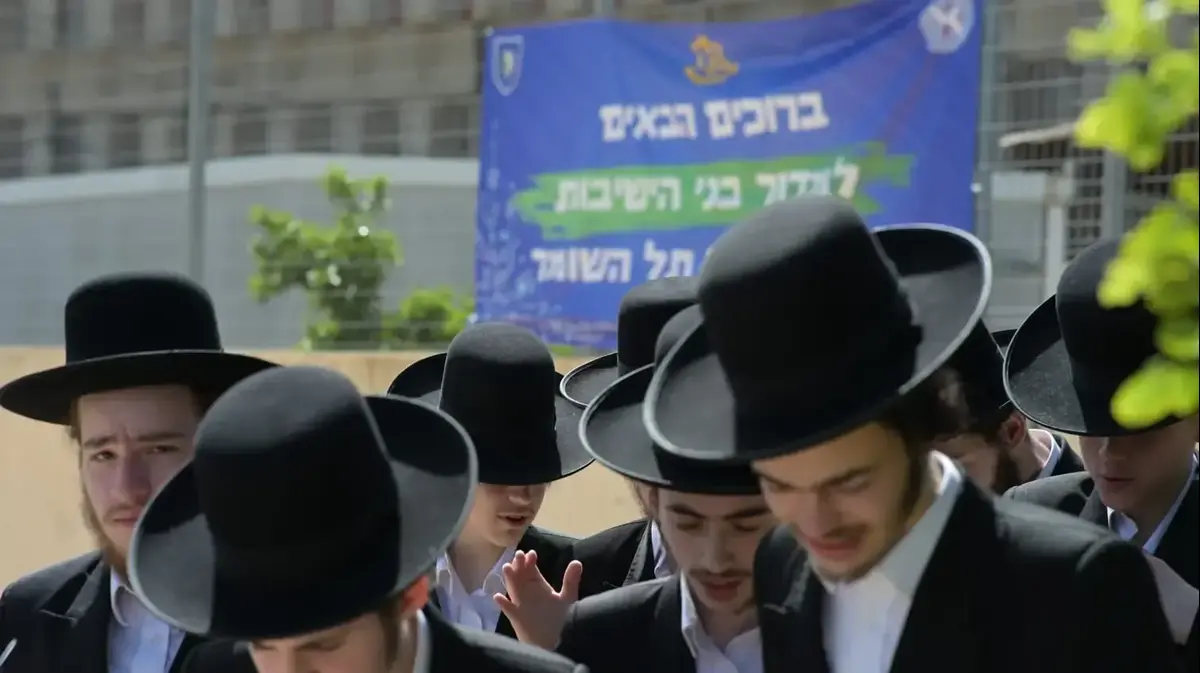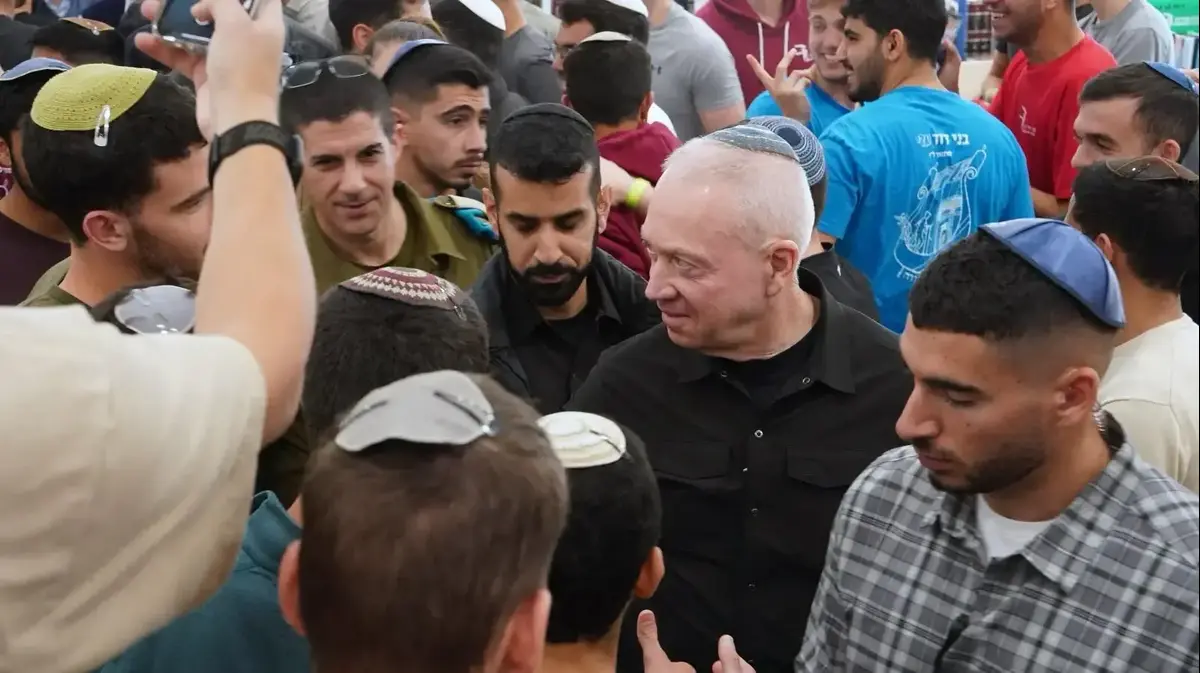Jordan Hersh, recruited after the riots in Washington: "Something sacred happened in this area" • Now he is helping fighters - including Christians, Muslims and even a Nordic pagan soldier
National Guard fighters in Washington
Photography:
AFP
When Rabbi Jordan Hersh saw on television President Trump's supporters storming the Capitol building on January 6, a thought crossed his mind: It may be time to go to his second job.
Hersh is a religious officer in the National Guard of the State of Maryland, the only rabbi among the clerics serving in the state's military.
Not a few hours passed and Hersh was already in the Capitol, wearing a uniform.
The next morning he sent a message to members of his congregation, members of the Beit Shalom congregation, the Conservative Synagogue in Frederick, Maryland, which he has been leading since 2014.
"My grandfather, the late Joseph Goldstein, who escaped from a world where the rule of law was often trampled by the mob, and whose anniversary will be celebrated next week, fought for this country because he believed wholeheartedly in what America stands for.
He told me that he always considered it the greatest honor he had ever received in his life, "Hersh wrote.
"Like many before me, my grandfather and I both swore to defend the constitution against all its enemies, both outside and inside," he added.
"Until yesterday I did not understand the full meaning of the last part of this oath. And I, together with my unit in the National Guard of the Army, have now been given the task of doing exactly that thing."
Nine days after the attack on the Capitol, Hersh was still in Washington, one of 25,000 National Guard troops gathered in the U.S. capital ahead of the new president's swearing-in, facing the threat of further violence. Arranged for soldiers who are not on duty, while taking care of the needs of both his soldiers and members of his community.
Hersh expects to stay in the foreseeable future in Washington, an hour away from his wife, two young children and his community.
"Definitely until the inauguration and beyond," he told JTA.
"We'll have to see what happens."
We spoke with Hersh about his path to the position of religious officer, his experiences this week and the Jewish aspect of his service in the Capitol.
How did you become a religious officer in the National Guard?
Hersh: In many ways the military was always something I aspired to when I was little.
When I was growing up I listened a lot to my grandfather's stories about his service in World War II.
When I was younger, during the movie "Love in the Sky", my real dream was to enlist in the Air Force and become a fighter pilot, but it did not happen.
Then before I studied rabbinate, when I was studying at the Conservative yeshiva, where we met [my wife Shuli and I], my original plan was to immigrate to Israel and serve in the IDF but I decided, in fact, to return to the United States and marry Shuli, and in short, more or less forgot about it.
In the meantime I had a lot of friends who went out for active service, and some who had a hard time finding themselves on the way back.
Then it became clear to me that our army needed to help the spiritual, emotional, needs of our soldiers.
And over the years I have acquired this skill as a spiritual shepherd.
Then, at a conference of the Knesset of Rabbis (the International Organization of Conservative Rabbis) about four years ago, I heard Colonel Larry Beiser, the chief religious officer of the Massachusetts National Guard, speak about the respect that religious officers in the military deserve.
At the end of his speech he said, "If you're under 40, let's talk to me," so I left.
Thus began my journey to the possibility of serving not only the Jewish community but also the community of soldiers of our country.
You are a rabbi in a synagogue. How does this fit in with your role in the National Guard?
The sentence you usually hear from both the National Guard and the Reserve Corps is "one weekend a month, two weeks a year."
As a Jew, I do not participate in training on Saturdays, in general.
So by and large I am absent one Sunday a month, and then I complete the time for the week.
This is my second community.
Then there are two or three weeks during the summer.
In general the community [in the synagogue] is very supportive.
Our unit is part of the army's pool of forces and its deployment rounds, so deployment abroad is certainly possible. When I spoke to my synagogue management at first about the possibility of doing so - legally I do not need their permission, but I said I would not do so without receiving their blessing. - Someone asked what would happen if you were recruited for active service? And the president [management] at the time said, well, that's how we as a community will get to serve.
Have you been in active service in the past?
Gave an answer on the national level at the time of the surge in the corona plague in the spring.
As of now, the alert was very short.
This is one of the things we all in the community and our families know is part of military life.
We went into three days of training.
And at the end of that Sunday in March we were told, go home and pack for two weeks, because the corona was on the rise and we were going to help set up field hospitals and check out sites across the country.
Many soldiers did not go home for three months.
It was a powerful experience and for me it was the first experience with something like that.
Many saw pictures of National Guard soldiers sleeping or gathering in the Capitol. What is the current situation for you?
We were there until yesterday.
The National Guard from all over the country is here, all over the city of Washington.
So my unit is still in the Capitol compound, but not in the building itself.
We're in another building that looks like the Senate building, with offices for senators and such.
What is the role of a religious officer in all this?
The constitution has two clauses regarding religion: the institutionalization clause, which prohibits the government from establishing a religion, and the clause of freedom of worship, which prohibits the government from doing anything that infringes on your religious freedom of worship.
So just as our soldiers are protecting the rights of Americans by securing our needs around the world, military officers of the military are guaranteeing the rights of our soldiers, and their rights under the First Amendment to the Constitution.
In the United States, religious officers are not divided by religion.
In other countries they are: in the British Army, a Jewish religious officer works with Jewish soldiers.
I'm a religious officer of my entire unit, no matter what religion they are from.
I have a Muslim soldier, so my job is to make sure he gets halal meat as he needs it.
I have a Nordic pagan soldier who is trying to get an exemption from the army's shaving instructions to grow a beard because it is part of his religion, and my job is to help enable him the process just as much as I have to make available to the Jewish soldiers.
That's part of it.
And just like in any rabbinical role, there is also the part related to spiritual accompaniment.
A big part of my job is to be a spiritual presence to my soldiers, someone they can talk to regardless of religion, regardless of any sense of religiosity.
One of the nice things about being a military religious officer is that we have 100% confidentiality, and that means that no matter what soldiers tell me, it stays with me unless I get explicit permission from them to tell.
So it provides a safe place for soldiers to talk in depth about problems they have, whether in military life or in civilian life.
I am also there not only for the soldiers but also for their families.
So for example yesterday I had a conversation with the wife of one of my soldiers - it is not easy to suddenly be left alone with the children, so I helped her process this experience.
Right now I was having a prayer.
I have very few Jewish soldiers, so my prayers do not have the character of a specific religion.
My goal, as the religious officer of my battalion, is to make sure that when I say a prayer or a prayer leader, that everyone can say "Amen."
One of the things we have heard from our readers is that January 6th has upset many people, but we feel particularly unsettled as Jews in America. I wonder if there is anything you would say in response to this as a rabbi.
One of the things I found most powerful about being in the military is that I have soldiers here who have never met anyone Jewish, and when I first came here, there were moments when I felt perhaps hesitant about not knowing what it was to be Jewish - and I look like a Jew, I have a skullcap.
But overall I found that the soldiers I am in contact with are curious people who want to get to know people.
We have a saying like this: In the army, everyone is green.
And it's a feeling that we're really feeling a lot of the time, that we're a family, no matter what religion we are, what race we are from, what nationality we are, we all serve a common goal.
It sounds almost a cliché, but it really creates this unifying factor.
In a more general sense, as Jews in this country, so yes, we are certainly not calm.
Undoubtedly in the last two years, and it has reached a kind of record in the Pittsburgh massacre, there has been an increase in antisemitic incidents all over the country.
But my experience is that even though it is happening, there are also more and more voices of comfort and unity that are heard on a level.
At my place of residence in Frederick, Maryland, after Pittsburgh, our parking lot was full and crowded with people who had come to stand on a memorial and protest vigil.
When a swastika painted on the sidewalk in the city was discovered, a man who went to work that morning went into a store and bought chalk and turned it into four squares that read "There is no room for hatred in Frederick."
So in all the sectarianism, and isolation, and in the polarization and fear that a lot of American and other Jews feel, I also found a huge amount of love coming from the residents of our area, and that's something I find refuge in.
There is concern, but like so many in life, I choose to focus on places where I find God in the world and it is in the love I experience in connection with others who are human beings like me, whether in the place where I live or in the military.
You posted some thoughts on Facebook, mostly about your stay in the Capitol and the seat of government. For many people this place carries almost spiritual significance. What stands out to you in particular from your experience?
It was unbelievably surreal.
We are a group of people, in the National Guard, who expect to be sent to wars, we expect to be recruited in the event of natural disasters.
We expect to have moments where we are called to help the community.
But no one expected it.
And to be in this building - I've never been inside the Capitol, in fact, even though I live right next to the city of Washington.
For my first time in this building it is just filled - all the time, endlessly - with soldiers arriving by organized transportation.
It was unbelievably powerful and the truth it reminded me of - sometimes when you come to Yad Vashem in Jerusalem, and there are all the soldiers who visit, who do a tour there.
There were times I was there during the day and the place was just full of soldiers, and that was about the feeling, and there was something sacred in that space.
Even though we were all tired, and it was terribly cold outside that night, and many of us stood for hours upon hours out there, there really was a sense of partnership in the importance of the moment.
I did not even once hear a soldier say, "I would rather be anywhere else" or "I want to go home."
There was a real sense of understanding and just like a spiritual experience, just like a religious experience, whose essence, in my opinion, is the feeling of connection to something greater than yourself.
This is what we experienced at that moment.
We all felt like we were part of something bigger than ourselves as individuals and serving a greater purpose than ourselves. Everyone understands why we are here.
And what is the idea behind our mission.
And that it's not a matter of politics.
It concerns the essence of our country and the meaning of being American.
Being there on the Capitol floor while the discussions took place, it was almost an existential experience.
We were really connected to the essence, to the spirit of America, and therefore connected to each other.
Is there anything else you would like our readers to know about you and your experience?
There is one thing.
My grandfather came to this country and fought in World War II.
He always said that this country, which had saved his life and the lives of his family, in the full sense of the word, was a refuge.
And the military in particular is part of that.
He had a story from North Africa, about a Catholic religious officer who gave him a Jewish prayer book.
He originally came from a country where Easter was the scariest day of the year because the Poles would go around looking for Jews to beat them, so for him it represented everything that was right in this country.
No country is perfect - we are a country of human beings run by human beings - but it is a place where Jews can contribute to the shaping of society, to the shaping of our culture.
For me, the military is one way to do that.
As Jews, we are called to be a light to the Gentiles.
And for me it means being a part of our world and acting in our own ways to make our world better and more just, freer, fairer, through the guidance we can give it from observing the way of the Torah.

